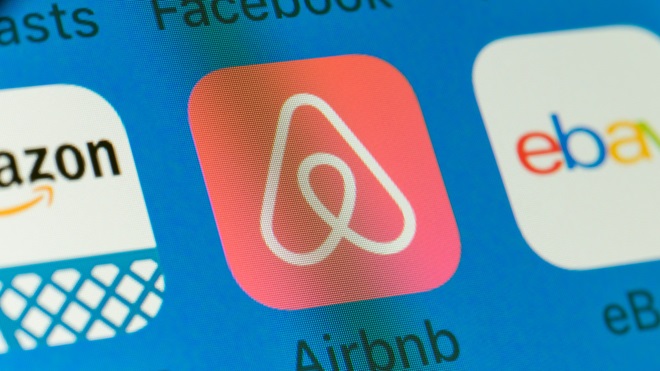When you make a hotel booking, you hand over certain information, including your name, phone number and payment details. It makes sense that the hotel asks for this information – they need to know who'll be staying, how they can contact you, and how you're going to pay. Simple.
But it's not quite as simple when it comes to the popular online accommodation platform, Airbnb. A recent CHOICE investigation found that Airbnb is potentially collecting a suite of information on its users (both 'guests' and 'hosts'), such as their employment history, academic qualifications and social connections, in order to determine whether or not they can use its service.
When we read through the patent, alarm bells rang
We believe Airbnb could be doing this through its patented algorithm. This gathers publicly and privately available data on users from third parties such as Facebook and LinkedIn – as well as public records such as marriage certificates, property records and arrest reports – to give users a 'trustworthiness' score.
When we read through the patent, alarm bells rang. The algorithm is claimed to assess people's personality traits, such as narcissism or conscientiousness, along with behavioural traits, such as drug use or involvement in civil litigation. Airbnb has updated the patent several times since 2017, suggesting the company is constantly using and refining the algorithm.
Airbnb makes up its own rules
We believe the information the algorithm gathers is not only potentially inaccurate and out of date, but also excessive, unnecessary and unreasonable.
Imagine if you tried to check into a hotel, only for the concierge to scroll through your Facebook friends and LinkedIn posts to determine whether you could stay or not. If it were a reasonable request, why doesn't Airbnb simply ask users directly, instead of potentially using an opaque and patented algorithm? Perhaps because the company knows most people would baulk at parting with such sensitive information – and understandably so.
Privacy matters
Airbnb's privacy policy, with its vague statements about the collection and use of personal data, offers little reassurance. It says that "in limited cases, automated processes, which analyze your account and activities on the Airbnb platform as well as information in relation to activities on and off the Airbnb platform that can be associated with you, could restrict or suspend access to the Airbnb Platform" [our emphasis].
This policy strikes us as deliberately worded to keep users in the dark about what information is being collected about them, and where it's coming from
This policy strikes us as deliberately worded to keep users in the dark about what information is being collected about them, and where it's coming from. Nor does Airbnb explicitly seek consent from its users before it finds out all it can about them online. This diminishes users' control over their data and privacy, letting the business invisibly assess their 'trustworthiness' as people.
Banned from Airbnb – with no explanation
In the course of our investigation, several people came forward to tell us they'd been barred from using Airbnb.
This included Renae Macheda, who describes herself and her husband as "clean, boring people". When she tried to book accommodation in October last year, she found herself banned from Airbnb and her account had been automatically closed.
The company gave her no reason for the ban. When she queried the decision, she got a brief email that was no more illuminating: "After reviewing all the information available to us, we've determined that your account will be removed from the Airbnb platform. Removal means that your account will no longer be accessible, and you won't be able to create another one. We want to assure you that we reviewed your case thoroughly before reaching this conclusion. As such, we won't be able to offer you additional support on this matter at this time."
Renae says she has no idea why Airbnb blocked her and her husband. Did a rogue Facebook friend post political views the algorithm deemed unacceptable? Did she like the 'wrong' job ad on LinkedIn?
She'll never know, and nor will we, because Airbnb feels no obligation to explain its decisions to the users it bans, nor respond to their bewildered queries. Instead, the company apparently believes it's perfectly acceptable to take as much information from people as it can, while offering the bare minimum in return.
Businesses should take only what they need – not what they want
To us, Airbnb is a clear example of a company overstepping the bounds of reasonable data collection and use. But we know it's not the only one in the market taking more than it needs from consumers. Eschewing transparency, accountability and redress for its users, Airbnb is making up its own rules regarding the personal information it collects, and what it does with it.
We believe a business should collect only the information on people that it reasonably needs to deliver (or improve) its product or service. It's a fairer exchange and meets the expectations of consumers, who just want to make a purchase without having all their personal information dug up and possibly used against them.
In the end, it should be up to the business to prove its ‘trustworthiness’ to consumers – not the other way around.
We're on your side
For more than 60 years, we've been making a difference for Australian consumers. In that time, we've never taken ads or sponsorship.
Instead we're funded by members who value expert reviews and independent product testing.
With no self-interest behind our advice, you don't just buy smarter, you get the answers that you need.
You know without hesitation what's safe for you and your family.
And you'll never be alone when something goes wrong or a business treats you unfairly.
Learn more about CHOICE membership today
Stock images: Getty, unless otherwise stated.



